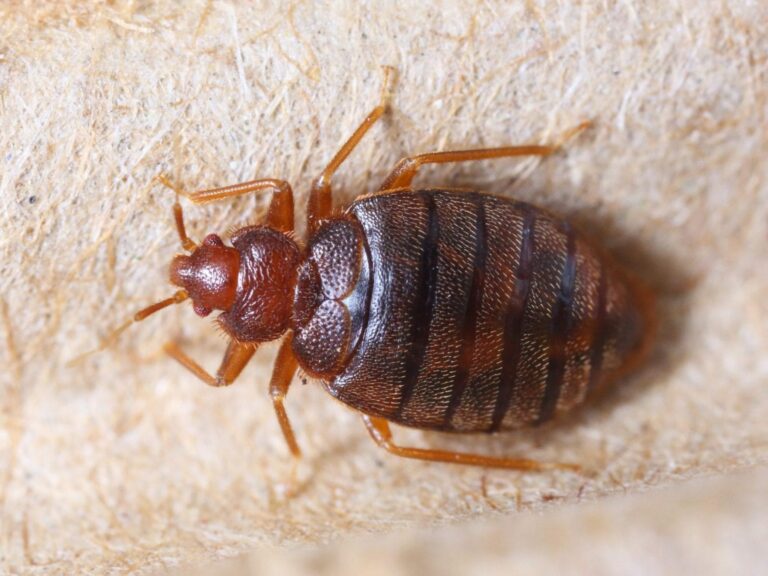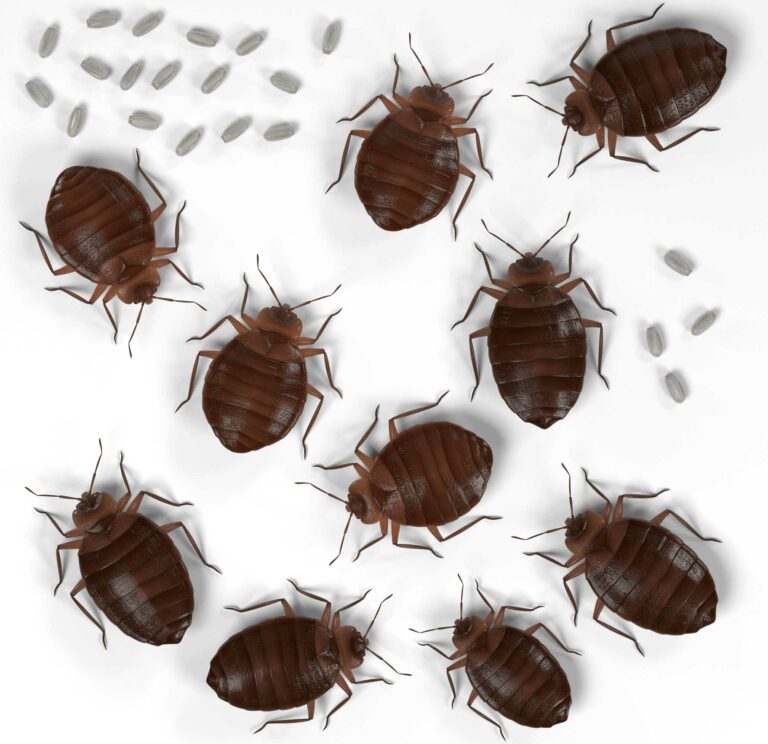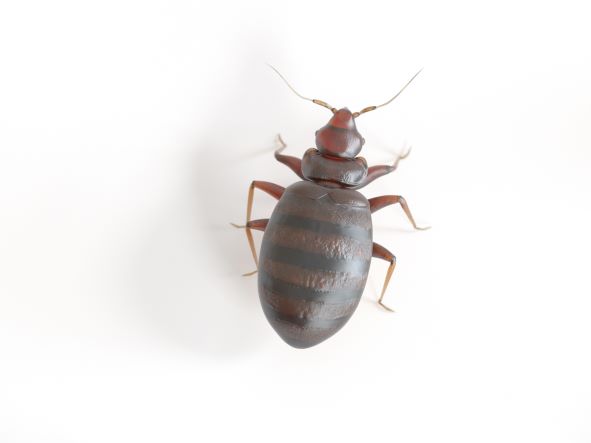Will Heat or Cold Eliminate a Bed Bug Spread?
Bed bugs are small, elusive, and resilient pests that thrive in a wide range of environments. They are particularly notorious for their resistance to extreme temperatures. This survival prowess often makes them a tough adversary for homeowners attempting eradication efforts. We examine the effect of heat and cold on bed bugs, to determine whether these temperature extremes can be leveraged to effectively combat a bed bug infestation.
Bed Bugs are Able to Survive in Many Environments
Bed bugs exhibit an exceptional level of resilience due to their adaptability to diverse conditions. These pests can adjust to a wide range of temperatures, from cold winter nights to hot summer days. Notably, they are capable of surviving temperatures as low as freezing point and as high as 45 degrees Celsius.
Frequent Feeding is Required
They do not require frequent feeding to survive – adult bed bugs can go for several months without a blood meal. This ability to withstand nutritional deprivation, coupled with their resistance to environmental extremes, makes them particularly difficult pests to eradicate. Additionally, their small size and flat bodies allow them to hide in tiny crevices and cracks, further enhancing their survival chances in varied environments.
The Dangers of a Bed Bug Spread
Bed bugs are notorious for their rapid spread, primarily through human activity and movement. They are exceptional hitchhikers, clinging onto luggage, clothing, and furniture, covertly transferring from one location to another. Their minute size and nocturnal lifestyle make them elusive, often unnoticed until an infestation is established. Bed bugs can proliferate in various environments, including homes, hotels, and public transport, making their control and extermination a challenging task.
To prevent the spread of bed bugs, it is essential to be vigilant and take proactive measures. When traveling, always inspect hotel rooms for signs of bed bugs, such as small brown spots on bedding and furniture or a musty odor. Avoid placing luggage on beds or upholstered furniture and instead use designated luggage racks or hard surfaces for storage. Upon returning home from a trip, immediately wash and dry all clothing on high heat to kill any potential bed bugs.
Bed Bug Temperature Limits
The survivability of bed bugs in extreme heat has been a subject of much interest. Research suggests that while bed bugs can withstand high temperatures, they are not entirely immune to extreme heat. In laboratory conditions, bed bugs have been found to succumb to sustained temperatures of around 49 degrees Celsius (120 degrees Fahrenheit) in about 90 minutes.
Reaching and maintaining such high temperatures in a real-world setting to effectively eliminate an infestation is challenging. It’s worth noting that the heat treatment must be evenly distributed, as any cold spots could potentially offer refuge to these pests. Extreme heat can kill bed bugs, the practical application of this approach requires careful consideration and professional handling.
Temperatures Needed to Kill Bed Bugs
In terms of specific temperatures, bed bugs begin to die when exposed to temperatures above 45 degrees Celsius (113 degrees Fahrenheit). However, to ensure a thorough extermination, the lethal temperature is considered to be around 49 degrees Celsius (120 degrees Fahrenheit). Maintaining this temperature consistently for about 90 minutes can effectively eliminate both adult bed bugs and their eggs. Despite this, attaining and preserving such high temperatures across an entire infested area can be a daunting task for a DIY-er, because this necessitates specialized heat treatment equipment.
Do Bed Bugs Die in Freezing Cold Temperatures?
Just as with extreme heat, bed bugs exhibit a level of resistance to extremely cold temperatures. However, research indicates that they are not impervious to sub-zero conditions. Bed bugs, at all stages of their lifecycle, can indeed be killed by prolonged exposure to temperatures below freezing. It is noted that a temperature of -16 degrees Celsius (3 degrees Fahrenheit) can kill bed bugs over a 4 day period.
A Cold Death
At temperatures of -18 degrees Celsius (0 degrees Fahrenheit) and below, bed bugs can die within a matter of hours. However, effectively leveraging this susceptibility to the cold involves maintaining these low temperatures consistently over a period of time, which can be a challenging task in real-world settings. Furthermore, similar to the challenges posed by heat treatments, cold treatments also necessitate professional handling and specialized equipment to ensure comprehensive extermination.
Limitations of Relying on Cold Outdoor Temperatures
Relying on cold outdoor temperatures to exterminate bed bugs presents several limitations. First, achieving and maintaining the extreme cold temperatures necessary to kill these pests can be difficult, particularly in regions with milder winters. Second, even in colder climates, the indoor temperature rarely drops to the necessary sub-zero levels due to heating systems. Moreover, bed bugs are adept at finding warm hiding spots within buildings, which enables them to escape the lethal cold.
Lastly, unlike heat treatments, there are currently very few exterminators who offer freeze treatment as an option, as it requires specialized and expensive equipment that is not always readily available. . Thus, while cold can theoretically kill bed bugs, leveraging it as a practical solution poses significant challenges.
Ineffective DIY Method to Eliminate Bed Bugs
While it may be tempting to attempt do-it-yourself (DIY) methods to eliminate bed bugs, many of these approaches are ineffective and can even exacerbate the problem. One such method is the use of conventional household insecticides. While these products may kill some of the bugs, they rarely reach the entirety of the infestation, particularly given bed bugs’ ability to hide in tiny crevices and cracks.
Moreover, many bed bug populations have developed resistance to common insecticides, rendering them largely ineffective. As a result, such DIY attempts not only fail to resolve the infestation but also provide a false sense of security, potentially allowing the bed bug population to grow unchecked. Consequently, professional pest control intervention is typically the most effective approach to thoroughly eliminating bed bugs.
Benefits of Professional Bed Bug Exterminators
Professional bed bug exterminators offer numerous advantages over DIY methods. First and foremost, they possess the expertise and experience to accurately identify the extent of an infestation, which is crucial for comprehensive eradication. Professionals use sophisticated tools and techniques, such as canine detection and heat treatments, which are far more effective than conventional insecticides.
Professionals Exterminate a Bed Bug Spread
They also have the ability to reach all areas of a property, including those that are often overlooked in DIY attempts, such as wall voids and furniture seams. Furthermore, professional exterminators help prevent future infestations by providing advice on preventative measures and conducting follow-up inspections. Lastly, utilizing professional services eliminates the risk of misusing pesticides, which can be harmful to human health and the environment. All these benefits make professional extermination the most reliable and effective solution for bed bug infestations.
Avoid a Bed Bug Spread!
Don’t let a bed bug spread put a damper on your peace of mind. If you’re battling a bed bug infestation, it’s time to take action. Call Bed Bug Barbeque in Cleveland, Ohio at (216) 221-1227. Our professional exterminators are equipped with the knowledge, experience, and tools to help you reclaim your home from these persistent pests. Get in touch now, and let’s put an end to your bed bug problem today.







